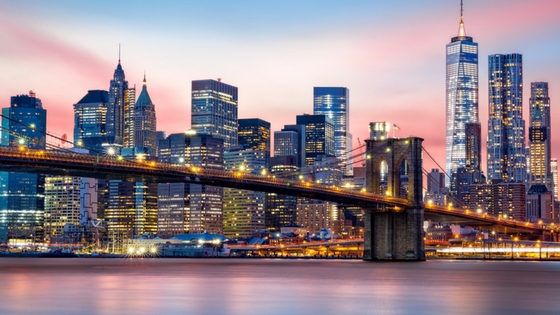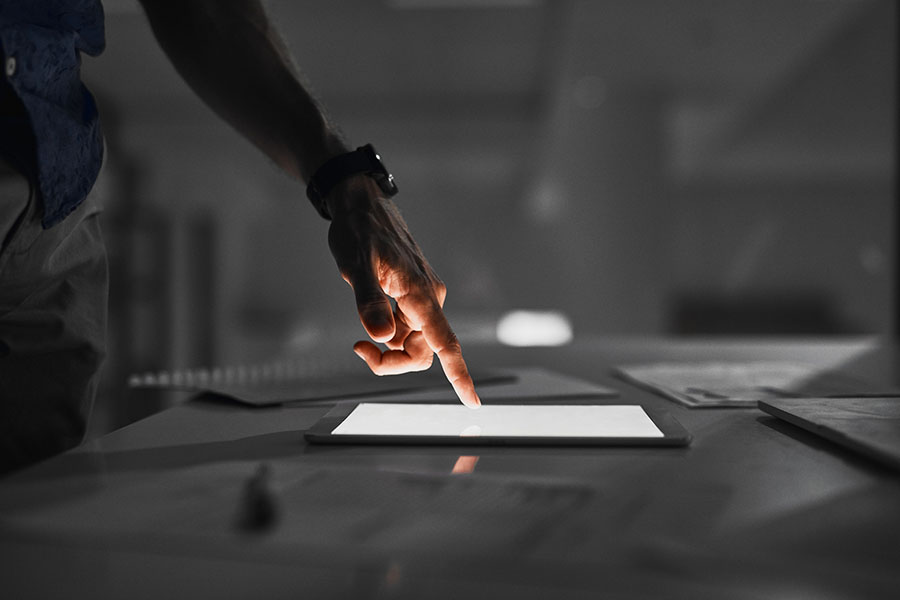Mimecast Voices: Jennifer Odogwu

Editor's note: This is the first in a series of profiles featuring Mimecasters sharing their personal experiences with, and perspectives on prejudice and marginalization, and what actions people can take to better support their colleagues in this era of change and help drive a culture of inclusion in and beyond the workplace.
When something like the May 25th murder of George Floyd at the hands of police occurs in the U.S., black communities around the world – your black colleagues – feel the impact.
“It feels like we’re all under attack,” said Mimecast’s Global Diversity and Inclusion Manager, Jennifer Odogwu, who lives in London. “The systems that are designed to support and protect you, a lot of us black people have little trust in them, and it’s justified.”
It’s highlighted by the George Floyd case, but there are many examples, Jennifer said.
“Every attack forces our own experiences of racial inequality and injustice to resurface.”
Her first experience with racism in the UK
Race, and more precisely, racism, wasn’t starkly apparent to Jennifer in primary school. She’d grown up in Tottenham, a majority black neighborhood in London, and had gone to a majority-black school.
For secondary school, Jennifer went to a more multi-racial school in North-West London. It was then that she became acutely aware of her race, of being the “only,” the “outsider,” she said. She recalls comments from classmates about her African features and her traditional African hairstyles.
“It was probably the first time some of them had been around someone who looked so different to them,” she said.
Since then – two decades later and now in the working world – not much has changed.
“I’ve lost count of the number of times I’ve walked into meetings and been the only black person in the room,” Jennifer said, “This is a shared experience amongst my black friends. Navigating the corporate world as a black person is hard.”
After spending 20 years in Tottenham, Jennifer’s family moved to a multi-ethnic neighborhood in London. She remembers her neighbor, a young boy around 6 or 7, shouting over their garden fence to offer her father a banana.
“We know what that means,” she said. “He was so young, and I remember being so angry, but my Dad ignored it. I wondered why my Dad hadn’t responded like me but then I realized it was because he had become all too familiar with racial discrimination since coming to London. ”
Jennifer’s parents had moved to Tottenham from Nigeria in the 1970s and had seen more overt racism than the subtle epithet she’d heard in garden that day. He’d experienced frequent traffic stops and searches by Police because he drove a BMW, had property applications denied without any valid cause and was often targeted by Police simply because he dressed in fancy suits.
Racism is subtle in the UK, Jennifer said. Police brutality and the historical context of slavery can often make racism in the U.S. more plainly visible. But microaggressions, or indirect and even unintentional actions of discrimination, are commonly experienced by black people globally.
Advice from your parents like “you need to work 10 times harder than your white peers,” are all too common.
“You never really know what that means until you actually experience it,” Jennifer explained. “Most black people have.”
Uniting in protest and in the workplace
In many ways, cases like George Floyd’s, Breonna Taylor’s and Ahmaud Arbery’s can make you feel helpless, but that’s why you’re seeing an outpouring of advocacy and protests on a global scale.
“That’s how we can help, it’s our way of showing we’re united in this,” Jennifer said.
Part of Jennifer’s job as global diversity and inclusion manager is driving culture change. This moment, George Floyd’s murder and the weeks of protest that have followed, is something she can use to help advocate for change in the workplace. To that end, Jennifer was pleased by Mimecast CEO Peter Bauer’s heartfelt response to George Floyd’s murder and subsequent unrest.
“We protest now because for too long we have been silent,” Bauer wrote last week, “and for too long we have forgiven ourselves for having the occasional thought that the marginalized people in our society are somehow complicit in their marginalization.”
“It would have been very awkward for me to advocate for diversity and inclusion, and especially as a black person, if I didn’t feel like Mimecast’s response was authentic. But it really was,” Jennifer stated.
Mimecast, and the tech industry in general, don’t have hugely diverse workforces.
“But we know we’re going to do something about it,” she said.
When Jennifer thinks about diversity, she thinks about the broad variety of differences in individuals that include race, age, sexual orientation and gender, but also perspective, educational background and upbringing. It’s her goal to create an environment that celebrates this diversity in the workplace. And if that sounds simple and utopic, the process to get there is among the most challenging obstacles facing organizations today.
“The reason it’s not easy to get there,” Jennifer said, “is because there are systemic biases in the workplace, unconscious and sometimes conscious, and, in a homogeneous group, it’s hard to change deep-rooted behaviors and structures.”
But, like protesters in the streets of cities around the world, Jennifer intends to challenge the status quo. That means not only focusing on diversity in recruitment, but also on inclusion once people are in the company.
Jennifer’s tips for taking action, for individuals and organizations
You can’t just proclaim yourself an “ally.”
“You need to actually take action to show you want to become one,” Jennifer said. “Ally is a verb.”
Individuals
- Acknowledge that racism is a problem that you want to help solve.
“I’ve been hearing from friends that they’re really angry that their employer hasn’t mentioned it—that’s disengagement. Then you have inclusive managers that acknowledge it and ask what they can do. You have to acknowledge it. If you’re not showing up right now for your employees, you risk losing them.”
- Educate yourself.
“Don’t place the burden of being educated on black people — find out about racism and injustice on your own. The worst thing you can do is act like you know about something when you haven’t done any research. And if you don’t know where to start, that’s where you can ask for help.”
- Don’t make this about you.
“There’s the classic book called ‘Why I’m No Longer Talking to White People About Race,’ it’s quite controversial, and so honest. Often a white person’s first reaction when talking about race can be defensive, or dismissive, and it’s exhausting to repeat this conversation. It’s about solving a problem. Listen and work to understand.”
Organizations
- Give people a voice to make a change.
“I haven’t seen this level of advocacy in my lifetime. My hope is that after all this media outrage, real action continues. For companies, this action is in the details. How diverse are your suppliers? How are you designing your products to consider all people? Who is your marketing strategy really targeting? And everything in between.”
- Audit your talent systems for any inequity
“At the end of the day, black people are looking for equity. For organizations, that means equity across the employee lifecycle. Review how you are paying your black staff, promoting your black staff and giving opportunity to your black staff in comparison to their white peers. If that’s not an outcome after all this, then it will feel like lip-service.”
- Focus on diversity in leadership.
“Too often black people are hired into junior level roles and it is near impossible to break the ‘concrete ceiling’. Focus on hiring at senior level too; that’s when real change will happen.”
“Ultimately it’s about fairness for all,” Jennifer said. “It’s 2020, this level of discrimination and injustice shouldn’t be existing. But unfortunately, it is. And in my little world, I will do whatever I can to change that.”
Subscribe to Cyber Resilience Insights for more articles like these
Get all the latest news and cybersecurity industry analysis delivered right to your inbox
Sign up successful
Thank you for signing up to receive updates from our blog
We will be in touch!

